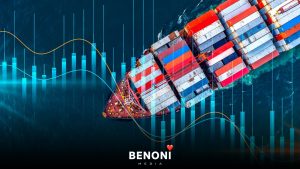The South African Revenue Service (SARS) has officially launched a dedicated cryptocurrency unit, set to aggressively tackle crypto trading and investments both within South Africa and abroad. With far-reaching powers, the unit is designed to clamp down on non-compliance, making it increasingly difficult and expensive for taxpayers to avoid their obligations.
Global Reach: SARS Expands Crypto Oversight
The new unit not only targets local crypto activity but also extends its reach globally, thanks to international cooperation and the automatic exchange of information. Tax experts at Tax Consulting SA emphasise that SARS can monitor crypto assets held both locally and offshore, ensuring that taxpayers remain accountable for their earnings no matter where their assets are based.
Specialised Team Investigates Crypto Non-Compliance
The SARS cryptocurrency unit is composed of highly trained experts with specialised skills, capable of conducting in-depth audits and investigations. Their role is to detect non-compliance at every level, from standard verifications to extreme cases, such as recategorising capital gains to income, which can drastically impact the tax bill.
The Impact of Recategorising Crypto Gains
One of the most concerning powers the unit holds is the ability to reclassify the proceeds of crypto sales. Tax experts warn that this can shift a taxpayer’s tax rate from a manageable 18% capital gains tax to as high as 45%, depending on the individual’s marginal tax rate. Such recategorisation can lead to a significant increase in tax liabilities, potentially negating most or all of a crypto holder’s gains.
Proving Capital Gains – A Near Impossible Task
A major hurdle for crypto holders is the burden of proof. Taxpayers must prove that their crypto assets are capital in nature—a difficult task without thorough records and legal documentation. In the absence of clear guidelines, many taxpayers may find themselves at the mercy of SARS’ interpretation, leading to potential disputes and costly legal battles.
SARS Intensifies Its Efforts
Tax Consulting has reported that SARS is already issuing Notices of Audit and Requests for Relevant Material to crypto holders. The unit’s extensive powers mean that taxpayers who have held or currently hold crypto assets should not assume that past non-declaration will be overlooked. Even historical tax errors will be scrutinised, and failure to comply could result in severe penalties or imprisonment.
Voluntary Disclosure Program (VDP) – A Way Out?
SARS is offering the Voluntary Disclosure Programme (VDP) as an option for non-compliant crypto traders to come forward and disclose their tax obligations. However, experts believe that SARS will continue to closely monitor crypto traders, making it likely that scrutiny will only intensify in the coming years.
No Escape – SARS’ Collecting Powers
A significant warning for taxpayers is that SARS has the authority to directly seize funds from bank accounts in cases of unpaid tax debt. Recent court rulings have demonstrated that SARS can instruct banks to transfer funds from an individual’s account without their consent, leaving very little room for taxpayers to avoid their obligations.
Conclusion
The launch of SARS’ cryptocurrency unit marks a new era of strict oversight for South African crypto holders. With global reach, specialised expertise, and the power to reclassify tax rates, taxpayers involved in crypto trading or investment must act with caution. Proper record-keeping and compliance with SARS’ requirements will be critical in avoiding costly penalties and potential legal action.








